Part I(Click here to see the second part)
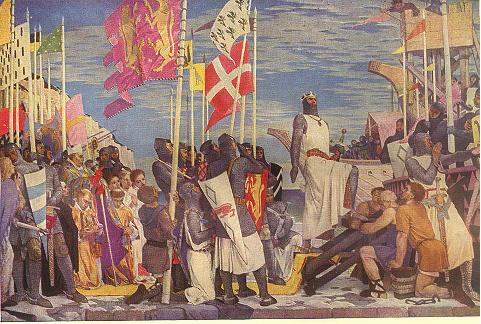
The Crusades It is said to be a series of religious wars that were ignited at the invitation of the Pope by European kings and nobles who volunteered to recapture the holy lands from the Muslims.. Crusaders from all over Western Europe participated in separate wars between 1095 and 1291..
Similar wars were fought in the Iberian Peninsula and Eastern Europe until the 15th century. Crusaders, or Crusaders for short, were Catholic Christians who fought against Muslims and Orthodox Christians in the territory of Eastern Rome and, to a lesser extent, against pagan Slavs and Balts, Mongols, and Christian Kharijites.[۱]; Although, at times, the Orthodox Christians united with them and fought against the Muslims. Crusaders were honored and pardoned by the Pope.
The Crusaders initially fought to recapture Jerusalem and the Holy Land from the Muslims, and their campaign was in fact a response to the Eastern Roman Empire's leaders' request to stop the advance of the Seljuk Turks into Anatolia.. Also, the term Crusades is used to describe simultaneous and subsequent campaigns in the 16th century, which were carried out outside the Levant for various religious, economic and political reasons, usually against pagans and Christian Kharijites and excommunicated people.. Competitions between Christian and Muslim power centers occasionally led to alliances between religious factions against their opponents, such as the Christian alliance with the Roman Seljuks in the First Crusade..
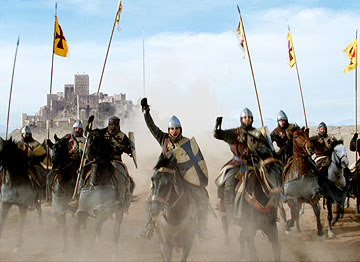
Continuation of the article and other photos in the continuation of the article
The Crusaders had temporary success at first, but were eventually driven out of the Holy Land. However, the Crusades had important political, economic and social effects on Europe. Due to internal conflicts between kings and Christian power centers, some crusades deviated from their original purpose, such as the Fourth Crusade, which led to the sack of Christian Constantinople and the division of the Byzantine Empire between the Republic of Venice and the Crusaders.. The Sixth Crusade was the first war to be launched without the official permission of the Pope. The seventh, eighth and ninth wars led to the victory of the Mamluks and Hafsians, and the ninth war was the end of the crusades in the Middle East..
The situation in the Middle East
According to the belief of Christians, holy lands are very important for them in the sense that they are the place of birth, life, crucifixion, and ascension of Jesus Christ to God.. After the formalization of Christianity in the Roman Empire by Constantine I in 313 and the division of the Empire and the formation of the Eastern Roman Empire, the Holy Land became predominantly Christian.. Many churches were built in important places of this land and held memorials for the events of the life of Jesus Christ.. In the belief of Muslims, Baitul-Maqdis is of special importance because it is the place of the ascension of the Prophet of Islam, and it is considered the third blessed place after Mecca and Medina.. The presence of Muslims in the holy lands began in the 7th century with the conquest of Syria during the time of Abu Bakr and Omar. The successes of the Muslims, especially the attacks of the Seljuk Turks, increased the pressure on the Eastern Roman Empire and the Eastern Orthodox Church, which claimed sovereignty over the land.. Jerusalem has special historical and religious importance for Jews because it houses the wall of mourning. In Jewish belief, the Nadeba Wall is the last survivor of the Second Temple, and Jews consider Jerusalem their ancestral land and visit it since its destruction in 70 AD and occupation in 136 AD..
The destruction of the Church of the Holy Sepulcher by the Fatimid caliph Bamirullah in 1009 was another factor that had an impact on the change of the West's view of the East.. His successor received large sums of money from the Eastern Roman Empire in 1039 to allow them to rebuild the church.[ After the restoration of the church, Christian pilgrims were again allowed to enter the holy lands. Finally, the Muslims realized that the wealth of Jerusalem was due to the income from the pilgrimage, and as a result, they stopped harassing the Christian pilgrims.. However, the violence of the Seljuks became one of the reasons for supporting the formation of the crusades in the Christian world.
The situation in Western Europe
The main origins of the Crusades lies in the situation in Western Europe and the weakness of the Eastern Roman Empire in dealing with the new wave of attacks by the Seljuk Muslim Turks.. In 1063, Pope Alexander II pardoned the Christian fighters who were killed in Andalusia against the Muslims.. As a result, there was mental preparation among the people for the calls for war by the Eastern Roman Empire, which were threatened by the Seljuks.. In 1074, Emperor Michael VII asked Pope Gregory VII and in 1095 Emperor Alexius I asked Pope Urban II for help against Muslim attacks..
Also, the Crusades were the conduit for the eruption of intense piety that had spread among the common people at the end of the 11th century.. A crusader received a cross from the Pope or his official representative after taking the oath and was considered an official soldier of the Church.. This point was partly due to the conflict between the church and the rulers that began in 1075 and continued during the First Crusade.. Both groups were trying to sway public opinion in their favor, and as a result, a series of house-burning wars was created.. The result of this struggle was the awareness of the Christian religious class and greater participation in religious affairs, which intensified with religious propaganda and supported the war to reclaim the holy lands from the Muslims.. God-fearing Christians who had committed sins saw participation in the Crusades and forgiveness of sins as a way to escape eternal hell.. What actions lead to the forgiveness of sins and whether it is necessary to be killed was one of the hot debates during the Crusades.. According to the speeches of Pope Urban II, forgiveness was granted only to those who were killed in the war to recapture Jerusalem, and if the Crusader army returned successfully, no more forgiveness would be granted..
The fall of Andalusia
Map of the Iberian Peninsula during the Murabat dynasty in the 11th century. The Christian states marked on the map are:: Aragon, Castile, Leon, Navarre, and Portugal
Original text: The fall of Andalusia
In 1095, when European Christians were being encouraged to start the Crusades, European princes had been fighting and driving out the Muslims in the Iberian Peninsula for a century with increasing success.. The superiority of the Kingdom of Leon over the Moors in the Battle of Toledo in 1085 was an important event that happened during this era; However, the fall of Andalusia took place in the following years. Separation and division among Muslim rulers was the main reason for these failures.
Although the conquest of Andalusia was the biggest reaction of the Europeans to the Muslim conquests, there were other reactions as well. In 1057, the Norman adventurer Robert Guiscard conquered Calabria, which was once part of the Eastern Roman territory, and defended it against the Muslims of Sicily.. The maritime states of Pisa, Genoa, and Catalonia were at war with the Muslim bases in Majorca, liberating the coasts of Italy and Catalonia from the Muslims.. According to these successes, Christians remembered their old lands. Muslims had conquered the Christian lands of Syria, Lebanon, Palestine, and Egypt, and there was a lot of motivation among the Christians to respond to the invitation of the Eastern Roman Emperor Alexius I to reclaim these lands..
Only war school
During his papacy, Pope Gregory VII was strongly involved in accepting the point that it is religiously permissible to shed human blood for the sake of God.. It was important to the Pope that Christian pilgrims to the Holy Land were persecuted. St. Augustine, the intellectual model of Pope Gregory, described the use of force to serve God in the book "City of God", and Gregory, who saw himself as the leader of Europe, saw the Christian view of "only war" in order to increase his power.. Northern European states became dependent on Rome and their troublesome knights engaged in war, a task for which they were well suited.. Previous attempts by the church to create such violence using the concept of "God's peace" have not worked out as expected.. South of Rome, the Normans fought with great energy the Arabs in Sicily and the Eastern Roman Empire.. Latino dominance (In contrast to the Greek-speaking Eastern Rome) Syria could have supported the papal claim to supremacy over the Archbishop of Constantinople, a claim that had led to the separation of East and West in 1054.. The Pope needed Frank's military forces to achieve this goal.
The weakness of the Byzantine Empire
In 1071, Alp Arslan, the Seljuk Sultan, in the Battle of Melazgerd, disastrously defeated the Eastern Roman army under the command of Emperor Romanus IV, as a result of which Eastern Rome became very weak and its territory in Asia was reduced to the western Anatolian regions around Constantinople.. Later, during the reign of Malik Shah, Muslims were able to capture Damascus, Jerusalem and some other areas in Syria. One of the signs of the confusion of Eastern Rome after these wars was Alexius I's request for help from his enemy, the Pope.. But Gregory was involved in the conflicts between the Pope and the European kings and could not ask the German emperor for war.. As a result, no crusade took place.
In the opinion of Pope Urban II - Pope Gregory's successor- A crusade would have united Christian kings, strengthened his papacy, and possibly brought the eastern regions under his control.. Disgruntled Germans and Normans should not be considered the main cause of the start of the crusades; Rather, the main factor should be sought in the thoughts of Pope Urban II.


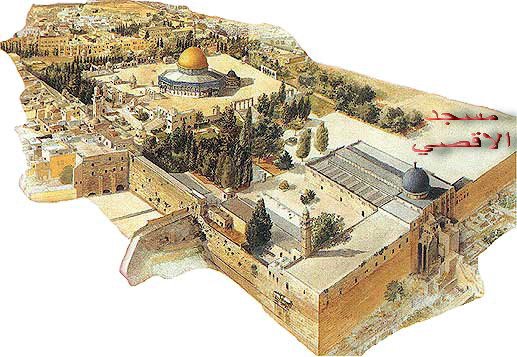
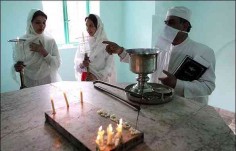
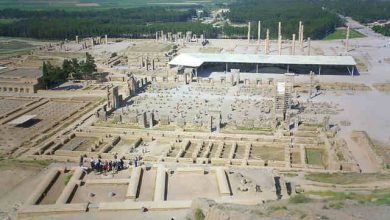
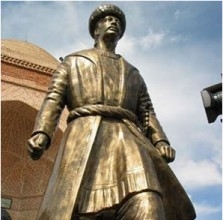

Thank you for your good content